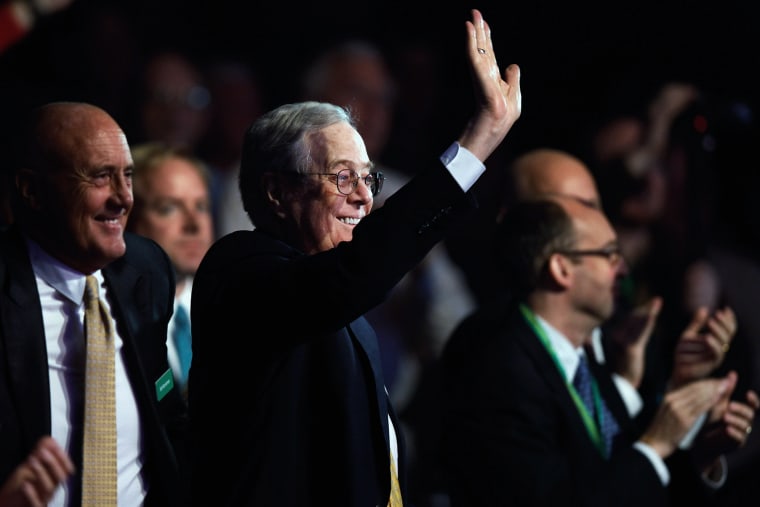A "dark money" group with ties to the Koch brothers was ordered to pay a fine for secretly funneling $15 million to conservative campaigns in California last year.
The announcement by state regulators opens a window into the web of organizations that has sprung up in recent years, encouraged by the 2010 Citizens United ruling, to evade campaign finance limits, pouring ever larger sums into the political process. And it underscores the value of tough disclosure laws like California’s, which are among the few tools left to stem the flow of money into politics.
"This case highlights the nationwide scourge of dark money nonprofit networks hiding the identities of their contributors," Ann Ravel, the chair of California’s campaign finance agency, said in a statement.
The Phoenix-based Center to Protect Patients’ Rights (CPPR) gave $11 million to another Phoenix-based group, Americans for Responsible Leadership (ARL), California regulators said. ARL then passed the money to a political action committee which used it to fight an initiative on the California ballot last fall, backed by Gov. Jerry Brown, that would have raised taxes on the wealthy.
CPPR was founded by a Republican operative who has worked closely with the Koch Brothers, according to the Center for Responsive Politics, a Washington-based good government group.
In the days before the November election, Attorney General Kamala Harris sued ARL to force it to disclose its donors. After a court sided with Harris, ARL disclosed that the money had come from CPPR, which, as a nonprofit, is not required to disclose its own donors.
Separately, CPPR also gave $4 million to the American Future Fund, which then gave it to a group supporting a different ballot initiative aimed at reducing the political power of labor unions.
The $1 million fine to be paid by CPPR and ARL is the largest in the history of the state’s campaign finance watchdog agency, the California Fair Political Practices Commission. The unreported $15 million also must be paid to the state’s general fund, according to the settlement.
Regulators established that the donations were given by CPPR with the goal of being used to affect campaigns in California. That means the group was required by state law to disclose them to the commission, which it did not do.
CPPR said in a statement that it had erred in failing to report its contributions, because it had never previously made contributions in California.
"The California Attorney General conducted a complete and thorough investigation and agreed that the conduct was unintentional and inadvertent," said Malcolm Segal, the attorney for the CPPR, in a statement.
